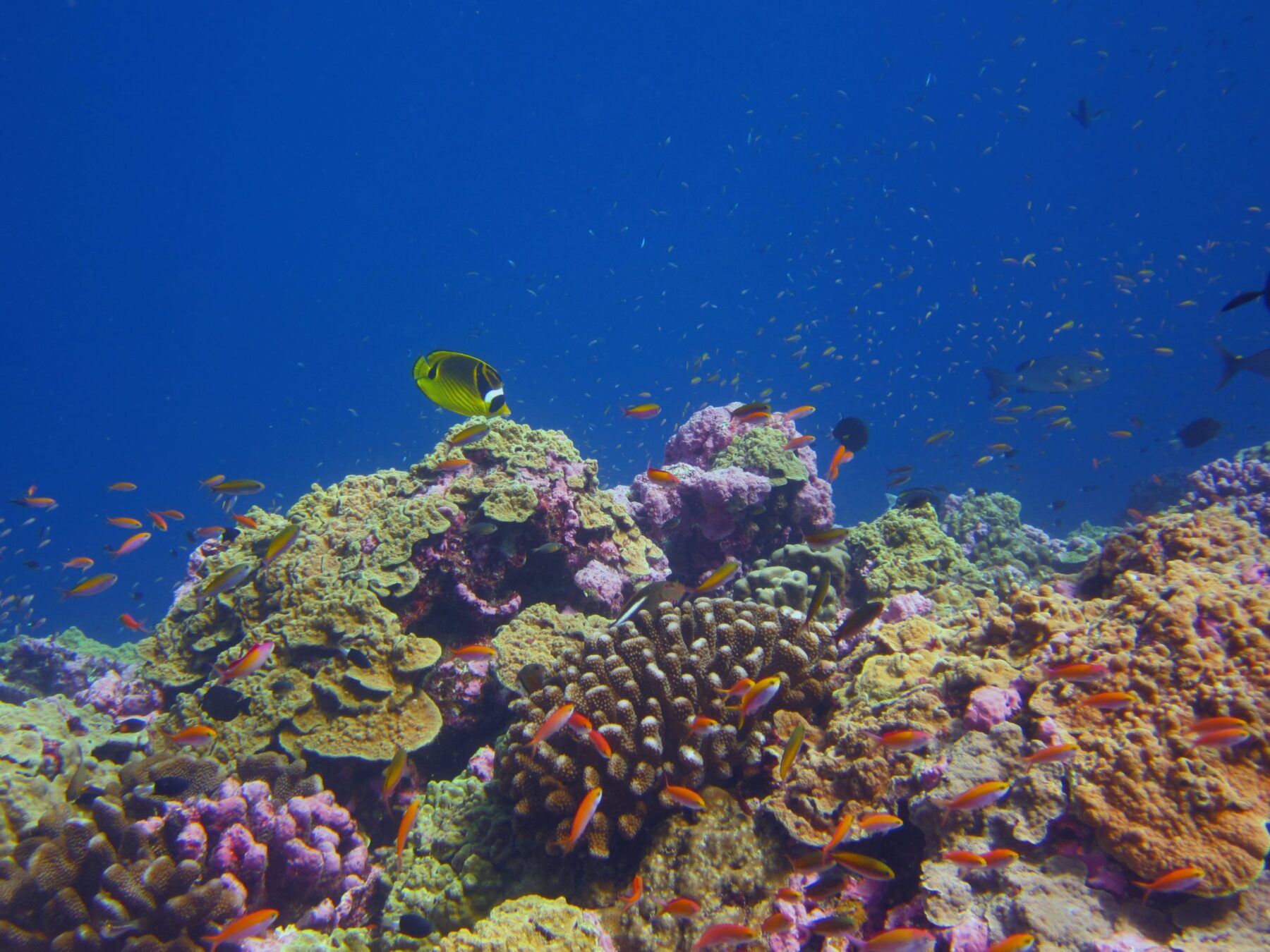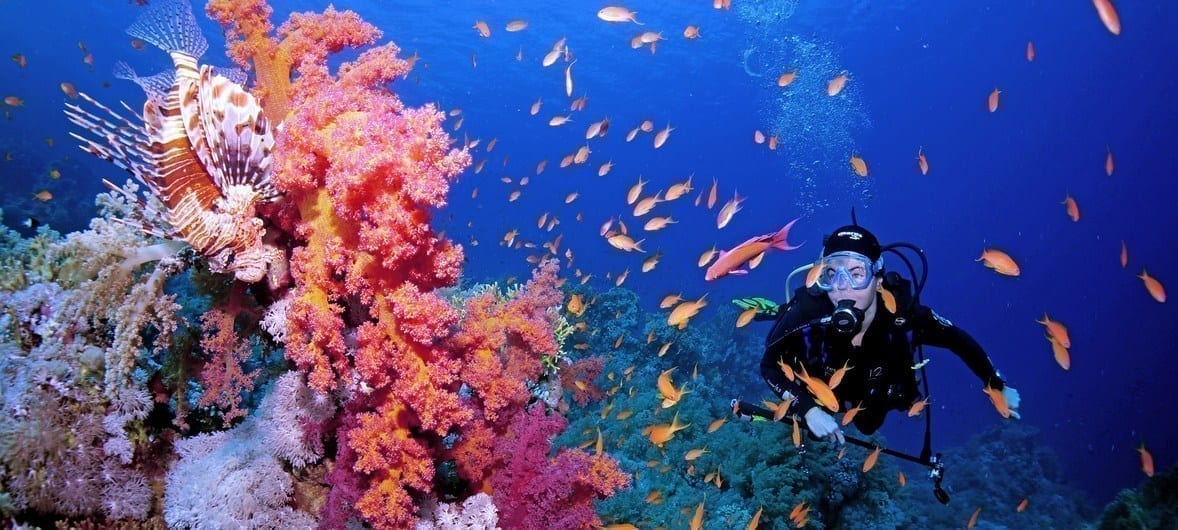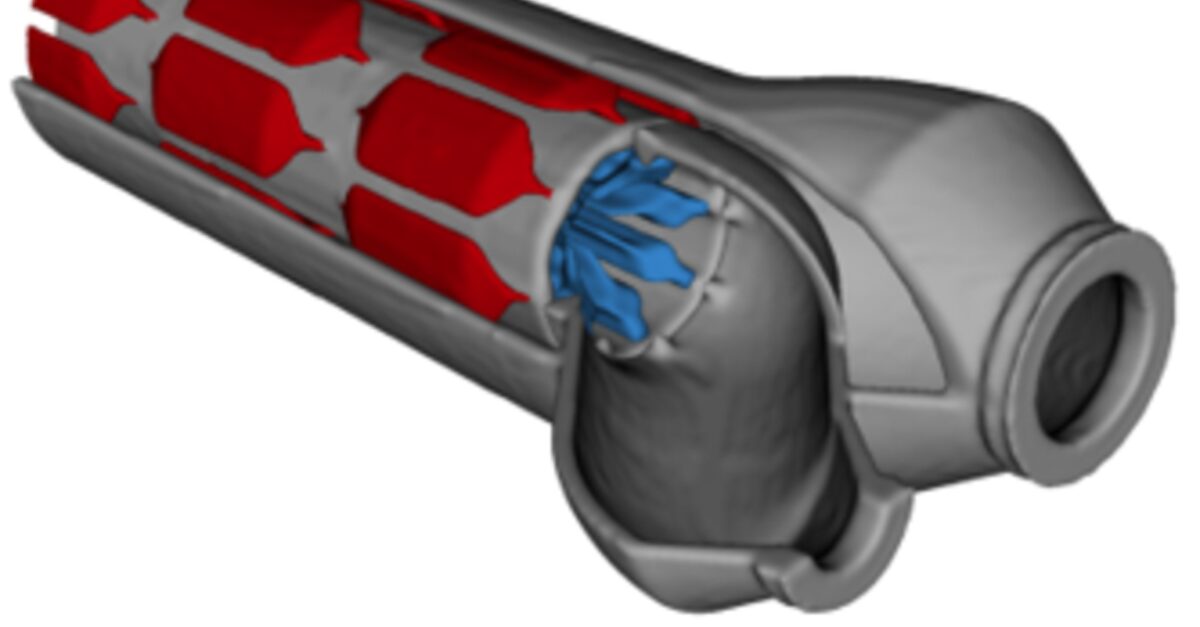
A healthy coral reef in the Phoenix Islands Protected Area
Some coral communities are becoming more heat tolerant as ocean temperatures rise, offering hope for corals in a changing climate.
After a series of marine heatwaves hit the Phoenix Islands Protected Area, or PIPA, in the central Pacific Ocean, a U.S. National Science Foundation-funded?study?finds the impact of heat stress on the coral communities lessened over time.
“The protected area gives us a rare opportunity to study pristine and isolated coral reef ecosystems,” said co-author Anne Cohen, a marine scientist at the Woods Hole Oceanographic Institution.
While a 2002-03 heatwave devastated coral communities in PIPA, the reefs recovered and experienced minimal losses during a similar event in 2009 and 2010. Then, in 2015 and 2016, a massive heatwave put twice as much heat stress on the corals, yet the die-off was much less severe than expected, according to the new research published in?Geophysical Research Letters.
The authors of the study suspect that heat-tolerant offspring from the surviving corals are repopulating the reefs, allowing the community to keep pace with warming seas, at least for the time being.
The study could help coral reef managers identify coral communities most likely to survive in a warming ocean, improving conservation and restoration outcomes.
“It’s easy to lose faith in coral reefs,” said first author Michael Fox, a coral reef ecologist at WHOI. “But in PIPA, which is protected from local stressors, and where reefs have enough time to recover between heatwaves, the coral populations are doing better than expected.”
Just like on land, heatwaves underwater are becoming more frequent and intense as the world warms, putting stress on ocean ecosystems. High temperatures hit coral reefs hard by causing widespread coral bleaching events, where corals eject the symbiotic algae from their tissues, further weakening the animals. With continued ocean warming, many coral reefs face a dim future.
Dan Thornhill, a program director in NSF’s Division of Ocean Sciences, added, “This study provides strong evidence that corals adapt rapidly to warming ocean temperatures. The resilience of corals in the Phoenix Islands Protected Area is certainly encouraging. But it remains to be seen whether increased temperature tolerance in coral populations can match the rapid warming and extreme events we are likely to see with climate change.”
Original Article: Some coral reefs are keeping pace with ocean warming
More from: Woods Hole Oceanographic Institution
The Latest Updates from Bing News & Google News
Go deeper with Bing News on:
Coral reef adaptation
- The Gulf Coast is home to one of the last healthy coral reefs. It’s surrounded by oil.on May 9, 2024 at 3:03 am
While the Gulf of Mexico is a region known for oil, it’s also home to something far less expected. Nestled among offshore oil platforms, about 150 miles from Houston, is one of the healthiest coral ...
- Unusually Healthy Coral Reefs, Surrounded By Oil Drillingon May 8, 2024 at 6:37 pm
As corals around the world bleach at alarming rates, scientists are racing to preserve a string of remarkable reefs in the Gulf of Mexico.
- Why is Lakshadweep facing widespread coral bleaching?on May 6, 2024 at 7:20 am
A new survey by the Central Marine Fisheries Research Institute has revealed that a substantial percentage of the hard coral species in Lakshadweep experienced severe bleaching due to an extended ...
- Kill Starfish Now to Save Great Barrier Reef—Scientistson May 1, 2024 at 10:32 am
These starfish can each munch over 100 square feet of coral every year, so culling them can help degrading reefs recover.
- I strive to make the Great Barrier Reef more resilient to heat stresson April 28, 2024 at 5:00 pm
“Studying marine conservation is hard. Marine ecosystems are degrading. Coral reefs are bleaching: by 2060, without significant emissions reductions, mass coral bleaching on the Great Barrier Reef ...
Go deeper with Google Headlines on:
Coral reef adaptation
[google_news title=”” keyword=”coral reef adaptation” num_posts=”5″ blurb_length=”0″ show_thumb=”left”]
Go deeper with Bing News on:
Coral reefs
- Rapid oyster reef restoration gives hope for repairing the seaon May 9, 2024 at 9:10 am
After a century of functional extinction on the Australian mainland, a Flat oyster reef has been successfully restored along a metropolitan Adelaide coastline.
- 'Large-Scale' Changes in Ocean Circulation May End Coral Reefson May 9, 2024 at 4:23 am
Scientists discovered that 2023 marked the worst year for coral bleaching in the Northern Hemisphere, with major reefs suffering.
- The Gulf Coast is home to one of the last healthy coral reefs. It’s surrounded by oil.on May 9, 2024 at 1:45 am
While the Gulf of Mexico is a region known for oil, it’s also home to something far less expected. Nestled among offshore oil platforms, about 150 miles from Houston, is one of the healthiest coral ...
- Coral reefs are experiencing another global bleaching event. Growing corals on artificial reefs could help save themon May 9, 2024 at 1:15 am
ECoREEF, an experiment taking place off the coast of Miami Beach, Florida, is testing the impact that hybrid reef structures have on coastal ecosystems.
- Storms are increasingly damaging shorelines. Could this hybrid coral reef help protect them?on May 9, 2024 at 1:03 am
Scientists at the University of Miami are studying how hybrid reefs - part natural, part man-made structures - could help bolster ocean ecosystems and also shield coastlines.
Go deeper with Google Headlines on:
Coral reefs
[google_news title=”” keyword=”coral reefs” num_posts=”5″ blurb_length=”0″ show_thumb=”left”]










